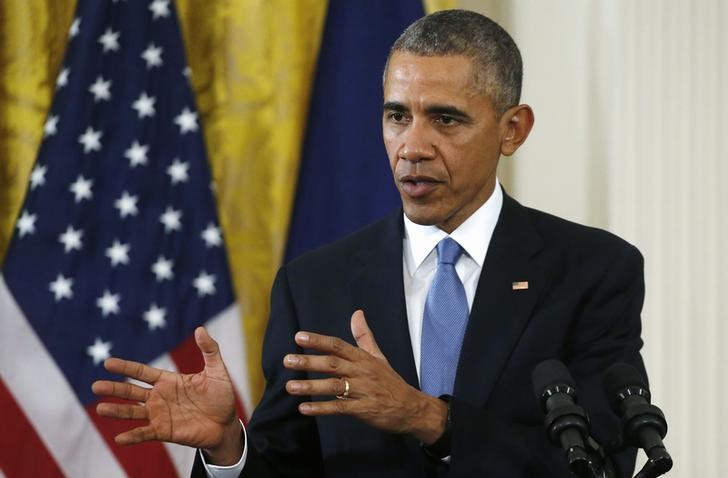By Valerie Volcovici
WASHINGTON (Reuters) - U.S. President Barack Obama will meet China's president and India's prime minister on the first day of the Paris climate talks on Nov. 30 to give momentum to the two-week U.N. negotiations, White House officials said on Tuesday.
Obama's meetings with Chinese President Xi Jinping and Indian Prime Minister Narendra Modi at the start of the two-week climate summit "send a strong message to the world about their strong commitment to climate change," White House Deputy National Security Advisor Ben Rhodes said.
Nearly 140 world leaders have confirmed their attendance at the opening day of the U.N. Climate Change conference that runs until Dec. 11, even after the Nov. 13 attacks by Islamic State militants rattled the host city.
Rhodes said Obama is likely to pay tribute to the people of Paris during his trip, and said he and other world leaders will attend the talks as a "clear sign of strength and resilience in the face of terrorism."
Paul Bodnar, senior director for energy and climate change at the White House National Security Council, said Obama's meetings with Xi and Modi are not meant to yield announcements but to consult on key negotiations issues.
"These two countries are two of our most important partners in dealing with global climate change," he said.
Obama will also meet with French President Francois Hollande, as well as with leaders of island nations such as the Seychelles and Marshall Islands that are threatened by rising sea levels.
Bodnar said the fact that over 170 countries have put forward targets and strategies to curb their greenhouse gas emissions post-2020 shows "unprecedented progress" that will "significantly bend down the global emissions curve."
But those targets and action plans would only hold the global temperature rise by the end of the century to around 2.7 degrees Celsius (4.9 Fahrenheits), he said, still well above the 1.5 C to 2 C (2.7 F to 3.6 F) degrees scientists recommend.
Earlier on Tuesday, U.S. lead climate talks negotiator Todd Stern said a Paris agreement should build in a review process that lets countries re-assess their targets every five years to put the world closer to a 2-degree (3.6 F) target.
Stern told reporters he is confident the Paris talks will yield a strong international agreement.
"We are riding on the wave of those 170 targets that have been submitted," Stern said.

"The stars are more aligned right now to reach agreement than I have ever seen them – than I have ever seen happen before."